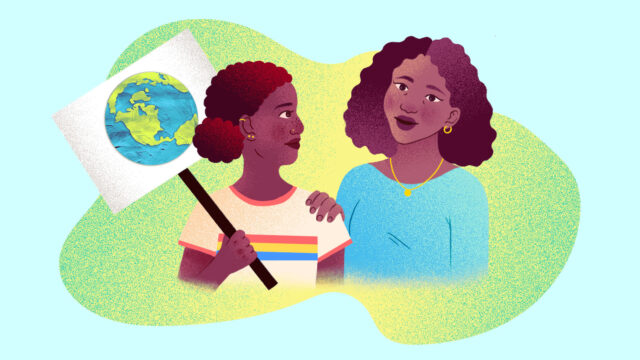Mumbai-based Sujata Nayak, the mother of 6-year-old Parth, recalls her kid asking what he could do to prevent Mumbai from drowning and being submerged in the next 20-30 years. She was perplexed and didn’t know what to say, she claims. Instead, she inquired of her son as to where he obtained this knowledge. “He was apparently investigating the consequences of pollution on the ozone layer when he came across a YouTube video describing how cities, including Mumbai, could someday be submerged,” adds Nayak.
In a similar situation, 11-year-old Kiara Bhatia questioned her unwitting mother if they would run out of water in the next several years. Kiara’s mother, Reena Bhatia, says, “I didn’t have a response to that and was surprised to see that she appeared frightened and afraid at the same time.”
It turns out that climate change is alarming more than just adults throughout the world. Our children, too, are aware of and educated about the coming calamity that climate change will bring to the earth, leaving them afraid, scared, apprehensive, and powerless. A study published in the Lancet medical publication in December 2021 backs up this assertion. Children and teens in 10 nations, including India, were either highly concerned or moderately concerned about the effects of climate change on their life, according to the survey. Furthermore, many of the study participants, including youngsters, stated that their sentiments about climate change had a detrimental impact on their everyday lives and functioning, and that many of them had unfavourable ideas about climate change.
This syndrome, which is now known as eco-anxiety, is common in children and young people throughout the world and has an influence on their everyday functioning. It is accompanied by dissatisfaction with government actions. Experts discuss how to manage anxiety in children and what parents can do to help them channel it productively.
The study sheds light on an essential topic that has received surprisingly little attention. The research shows how the effects of climate change put children at risk for mental health problems like PTSD, depression, anxiety, phobias, sleep difficulties, attachment disorders, and drug misuse. Of all, as Singhal points out, a single climatic event does not necessarily result in mental health implications. “Rather, children’s mental health is harmed by the additive and cumulative impacts of harmful environmental stresses.”







